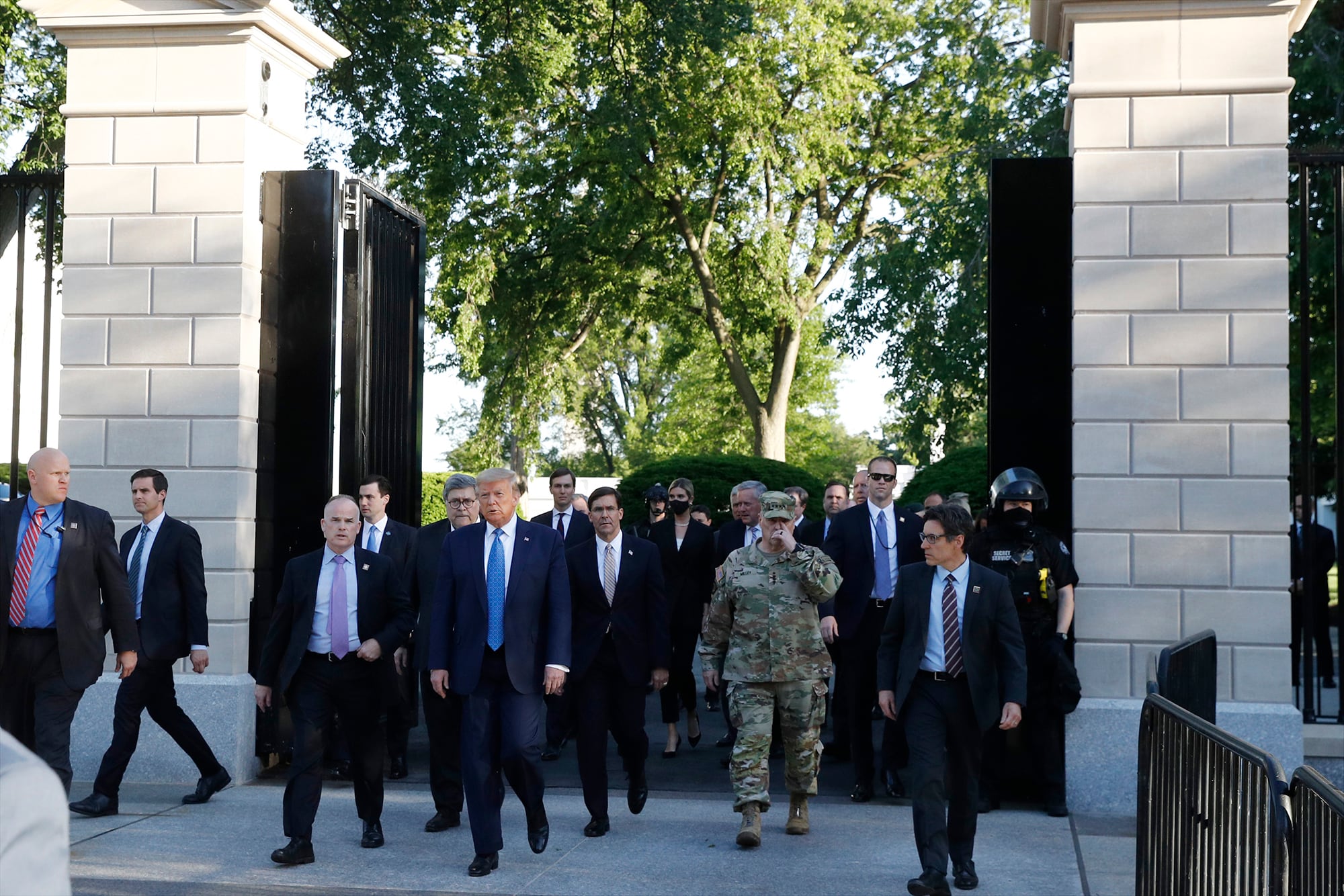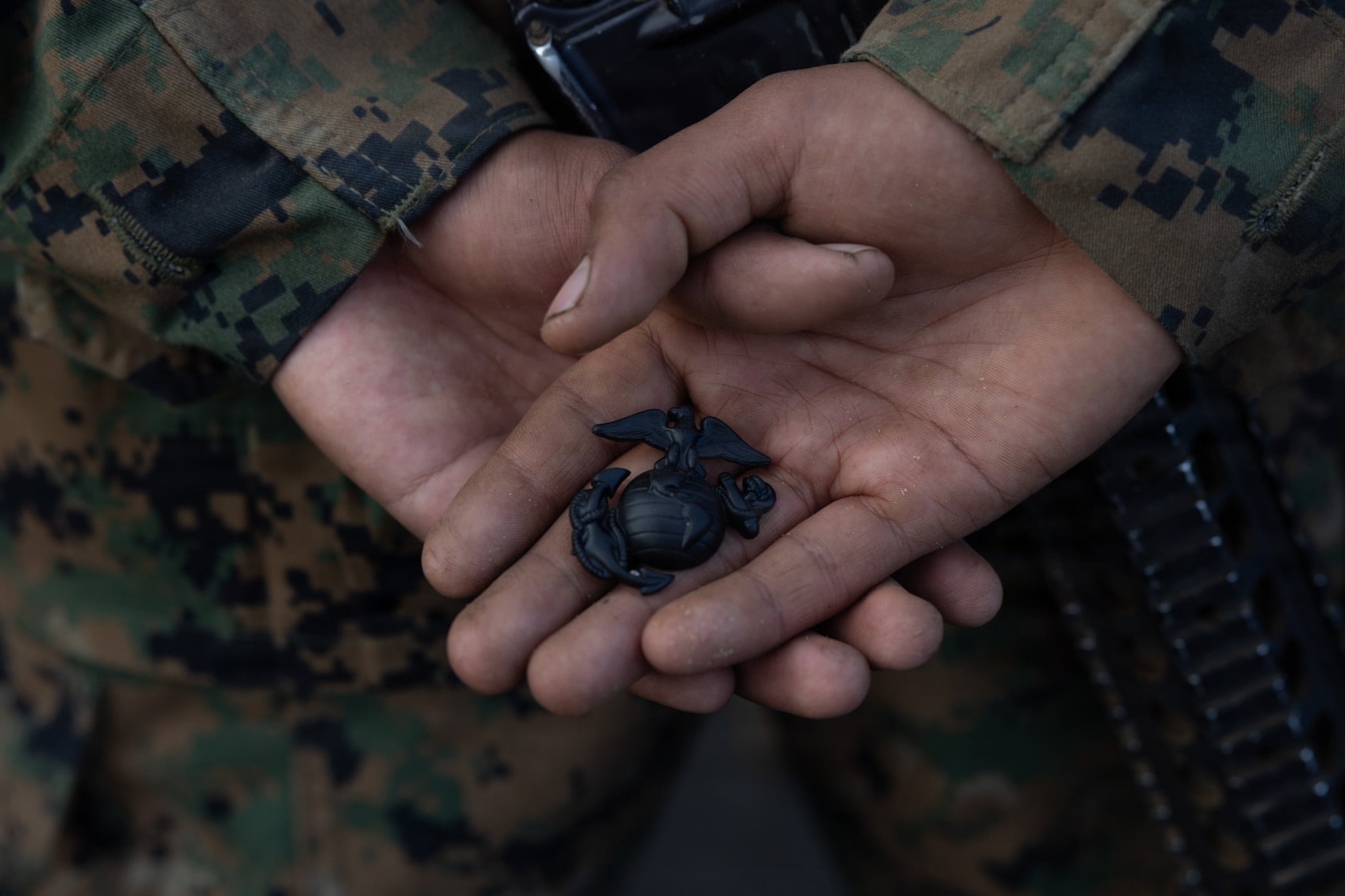In 1982, following the Falklands War, in which an Argentine attempt to seize the islands by force ended in humiliating defeat for the invaders, riots broke out in Buenos Aires against the military junta of General Galtieri. I remember vividly one news report shown at the time on British television. It depicted Galtieri with a handful of his fellow generals strutting in front of the city’s Metropolitan Cathedral after soldiers had beaten a path for them through protesters crowding the Plaza de Mayo, in a vain attempt to show Argentinians that the junta was still in charge.
This week’s presidential photo opportunity in front of St. John’s Church, with Secretary of Defense Mark Esper and Chairman of the Joint Chiefs Gen. Mark Milley reminded me of that occasion. Apparently, Esper and Milley were unaware at the time that their participation in this spectacle would mimic in the heart of our republic a scene so sadly reminiscent of South American dictatorship. Perhaps they were unaware, too, that the use of force to clear their way through peaceful protesters was a violation of the Constitution they swore to defend. And now, perhaps, given the benefit of hindsight, they regret playing their part in a scene damaging to the institution that they love. Assuming that neither decides to resign as a result, I hope that in the days ahead they avoid risking further harm to that institution by considering carefully any decision to deploy active-duty military to America’s streets. Two points in particular should weigh heavily in their deliberation:
First, the decision to use the U.S. military in any situation in which they are likely to come into direct confrontation with American citizens should only be taken as a last resort. The Insurrection Act of 1807 does indeed provide sound legal basis for the president to take such action should civil authorities find themselves unequal to the task, but there is a difference between having the right do to something, and it being the right thing to do. Deploying active-duty soldiers to the streets of our cities will, at best, come at a cost to the position of trust that the military enjoys in the eyes of the American public. For those of us who have fought overseas, it is in part this trust that gave our efforts a real sense of meaning.
If the nation was facing an armed insurrection or civil war, then the decision would be an easy one, but antifa is not the Islamic State. The nation’s civil authorities are not facing an organization with tens of thousands of foot soldiers and a sophisticated command and control network. With that in mind, Secretary Esper’s recent injunction to state governors to “dominate the battlespace,” sounded to someone like myself, who has been tasked with doing exactly that against a formidable foe, both unhelpful and hyperbolic.
Second, although public proclamations about using elite units such as the 82nd Airborne carry with them an ostensibly reassuring message, the truth is that outside specialized law enforcement units, the active-duty military receives very little training in dealing with civil disturbance. Proficiency in this area, as with all collective skills, comes only after extensive training and is highly perishable. As a lieutenant in an infantry battalion mobilized to help put down the LA riots in 1991, I have memories of leading my platoon in archaic crowd control maneuvers across the battalion parade deck. Then prior to each deployment to Iraq, units in which I served would undergo a cursory course in crowd control. That was the sum of my experience, which I would guess, is not atypical of personnel serving in combat units. Hardly sufficient to prepare young soldiers for fraught confrontation with their nation’s citizenry. The men and women of our armed forces are highly disciplined, but their leadership would do them great disservice by deploying them on a mission for which they are ill-prepared.
Even the most hawkish proponents of deploying active-duty troops to American cities must surely care about the consequences for the soldiers involved and for the U.S. military as an institution. But perhaps not. Sen. Tom Cotton’s recent exhortation to the military deployed for such a task to “Give No Quarter” is a sobering reminder of what might happen if our military leadership does not speak up as the voice of reason. “Everyone who takes an oath of office must think about where he or she will draw the line,” commented an administration official yesterday in his letter of resignation to the secretary of defense. Hopefully both Secretary Esper and General Milley have already decided where to draw theirs.
Andrew Milburn retired in March 2019 as the chief of staff at Special Operations Command Central. Over a 31-year career he commanded Marine and special operations forces in combat at every rank. He is the author of “When the Tempest Gathers: From Mogadishu to the fight against ISIS, a Marine Special Operations Commander at War.”
Editor’s note: This is an Op-Ed and as such, the opinions expressed are those of the author. If you would like to respond, or have an editorial of your own you would like to submit, please contact Military Times managing editor Howard Altman, haltman@militarytimes.com.





